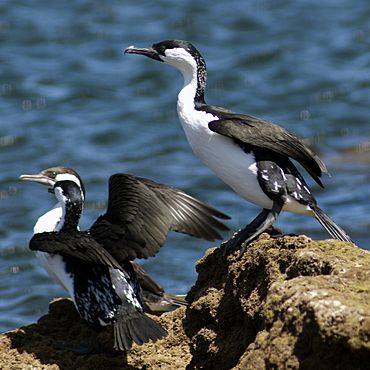Aldinga Beach, South Australia facts for kids
Quick facts for kids Aldinga BeachSouth Australia |
|||||||||||||||
|---|---|---|---|---|---|---|---|---|---|---|---|---|---|---|---|

Black cormorants at Aldinga Beach
|
|||||||||||||||
| Postcode(s) | 5173 | ||||||||||||||
| Time zone | ACST (UTC+9:30) | ||||||||||||||
| • Summer (DST) | ACDT (UTC+10:30) | ||||||||||||||
| Location | 41 km (25 mi) S of Adelaide | ||||||||||||||
| LGA(s) | City of Onkaparinga | ||||||||||||||
| Region | Southern Adelaide | ||||||||||||||
| County | Adelaide | ||||||||||||||
| State electorate(s) | Mawson | ||||||||||||||
| Federal Division(s) | Mayo | ||||||||||||||
|
|||||||||||||||
|
|||||||||||||||
| Footnotes | Adjoining suburbs | ||||||||||||||
Aldinga Beach is a cool coastal suburb located south of Adelaide in South Australia. It's part of the City of Onkaparinga and has the postcode 5173. In 2016, about 10,557 people lived here. Aldinga Beach is just a short distance west of the smaller town called Aldinga. The beach itself is super popular for fun activities like surfing, swimming, scuba diving, and snorkelling, especially during the summer. It's also special because it looks out over an aquatic reserve. This reserve helps protect a really unique reef formation under the water.
Just south of Aldinga Beach, you'll find the Silver Sands beach. This area is also a popular spot for holidays.
Discovering Aldinga Beach's Past
First People of the Land
Long before Europeans arrived, the Kaurna people were the traditional owners of the land around Aldinga Beach. Their territory stretched from the Adelaide plains all the way down the western side of the Fleurieu Peninsula. There was a Kaurna camp at Aldinga called Camp Coortandillah. Kaurna people lived in the Aldinga Scrub until the 1870s. Sadly, they were then moved to a mission far away. After they left, some Ngarrindjeri people from the Goolwa area lived here for a while. The Kaurna name for Aldinga was Ngaltingga.
European Settlement and Growth
The Aldinga Beach Post Office first opened its doors on March 1, 1960. This marked a time of more development in the area.
Aldinga Beach has some old buildings that are important to its history. These places are listed on the South Australian Heritage Register. They include old farmhouses and a barn, showing what the area was like a long time ago.
Nature and Protected Areas
Aldinga Beach is home to two important protected areas. These places help keep the local plants, animals, and natural beauty safe. They are the Aldinga Scrub Conservation Park and the Aldinga Reef Aquatic Reserve.
Aldinga Scrub Conservation Park
The Aldinga Scrub Conservation Park is located in the southern part of Aldinga Beach. It also extends into the nearby suburb of Sellicks Beach. This park is a special place where you can see native Australian plants and animals.
Aldinga Reef Aquatic Reserve
The Aldinga Reef aquatic reserve is right off the coast of Aldinga Beach and Port Willunga. This underwater park protects the amazing reef system. It's a fantastic spot for scuba diving and snorkelling to see colourful fish and marine life.
The Aldinga Washpool Wetlands
The Aldinga Washpool and Blue Lagoon are located just south of the conservation park. The Washpool area is quite large, covering about 75 hectares. The Blue Lagoon is a smaller, beautiful lagoon at one end.
The Washpool is one of the few remaining natural coastal wetlands in the greater Adelaide area. It's a really important home for many waterbirds, like the hooded plover, and other unique plants and animals. The wetland fills up with water during the winter rains. It can dry out from about October to May each year. This area is a popular spot for birding, which means watching birds. It's also a breeding ground for a rare butterfly called the yellowish sedge skipper.
The Washpool area is also very important to the Kaurna people, the traditional owners. It's where a freshwater spring connected to the Tjirbruke (a creator ancestor) Dreaming Track is located. The Kaurna name for this area was Wakondilla or Wangkondilla. The Kaurna people used this area for preparing animal skins. There were also freshwater springs nearby where they would set up camps. They would hunt in the Aldinga Scrub and fish along Sellicks Beach.
For many years, volunteers have been working hard to help the Washpool area return to its natural state. They have been planting special plants, like gahnia seedlings, which the yellowish sedge skipper butterfly needs to survive. People have been working to protect this area since 1971.
 | John T. Biggers |
 | Thomas Blackshear |
 | Mark Bradford |
 | Beverly Buchanan |


